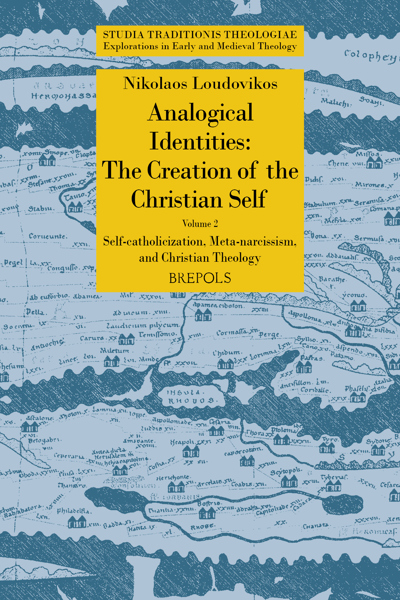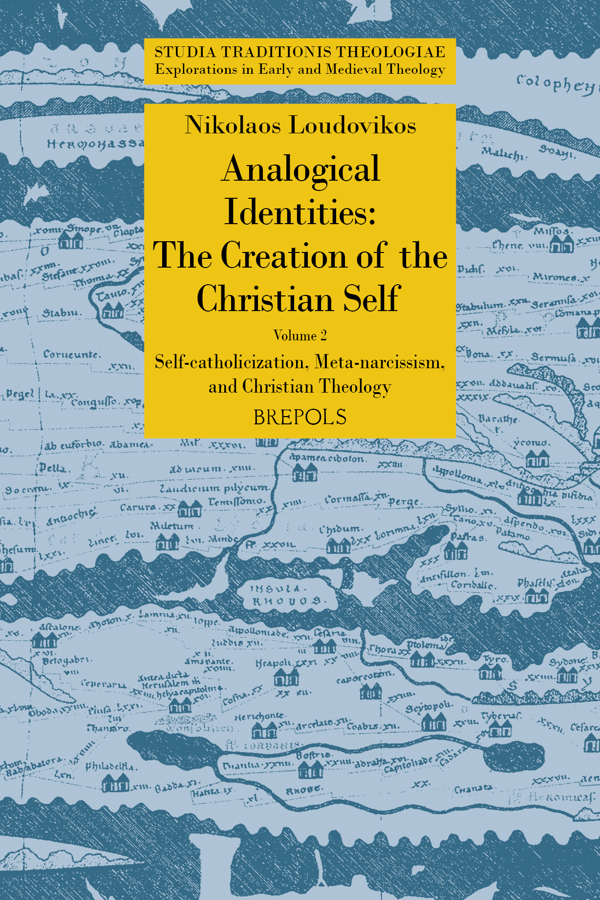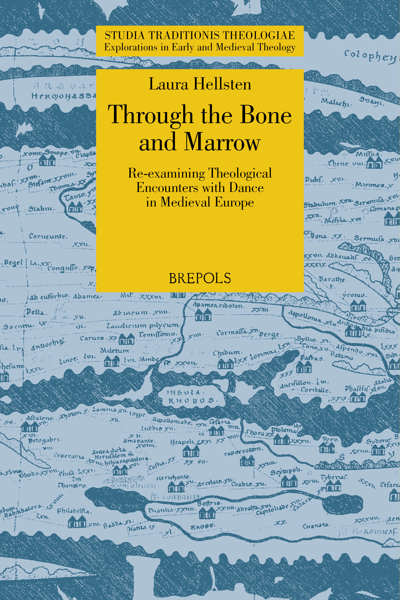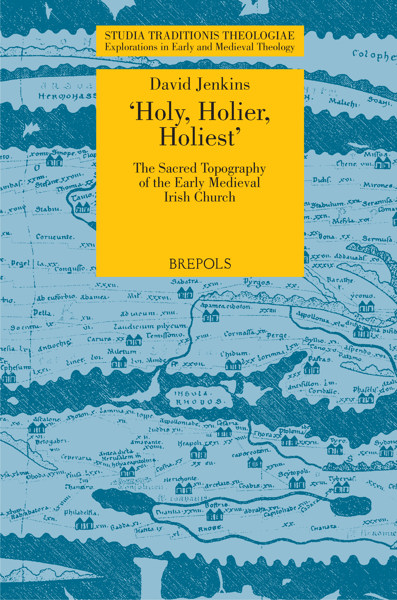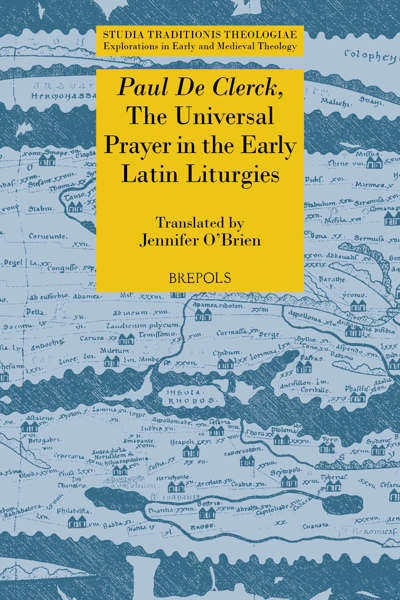
Analogical Identities: The Creation of the Christian Self
Volume 2: Self-catholicization, Meta-narcissism, and Christian Theology
Nikolaos Loudovikos
- Pages: 288 p.
- Size:156 x 234 mm
- Language(s):English, Greek, Latin
- Publication Year:2024
- € 70,00 EXCL. VAT RETAIL PRICE
- ISBN: 978-2-503-60991-1
- Paperback
- Forthcoming (May/24)
- € 70,00 EXCL. VAT RETAIL PRICE
- ISBN: 978-2-503-60992-8
- E-book
- Forthcoming
*How to pre-order?
This trilogy is the articulation of a modern Greek-Western anthropology of theological inspiration, which also gives some answers to modern philosophical and psychological quest, by using and re- interpreting significant Patristic or Medieval texts
The V. Rev. Prof. Nikolaos Loudovikos studied Psychology, Pedagogy, Theology, Philosophy, and History of Religions at the Universities of Athens, Thessaloniki, Paris (Institut Catholique de Paris, Sorbonne 4), and Cambridge. He was Professor of Dogmatics and Christian Philosophy at the University Ecclesiastical Academy of Thessaloniki. He is now Professor of Religious Studies and Hermeneutics of Religion at the University of Ioannina, a Visiting Professor at the Institute for Orthodox Christian Studies, Cambridge UK, and at the University of Balamand, Lebanon. He is the author of twenty books of Systematic or Philosophical Theology and Hermeneutics of Religion, and numerous articles, translated in ten languages. He is the Senior Editor of Analogia: The Pemptousia Journal for Theological Studies.
Following the first volume entitled Analogical Identities: The Creation of the Christian Self of a trilogy dedicated to Christian anthropology in a modern re-assessment, the present second volume deals with the specific content of this concept of “Analogical Identity” as a new hermeneutic retrieval of Christian anthropology in its relation with its historical roots and in the light of modern Philosophical and Psychological thought, to which we thus introduce some new conceptual tools. At the same time, a theological criticism of modern Philosophy and Psychology is initiated, and some new anthropological concepts of theological provenance are proposed.
INTRODUCTION
PART I: Theology of Analogical Consubstantiality and Theological Tradition
Argument
Chapter 1. Consubstantiality Beyond Perichoresis, East and West
Chapter 2. Dialogical or Monological Analogy? A Palamite reading of Thomas, and a Thomist reading of Palamas
Chapter 3. Practising Analogical Consubstantiality: Mary the Theotokos as an example, from Nicholas Cabasilas to Sergius Bulgakov
Chapter 4. What is then Sophia?
Chapter 5. Consubstantiality-as-Descent: Maximus, Palamas, Sophrony
Chapter 6. Acting upon God: A Eucharistic Gnosiology
PART II: Philosophy of the Self-catholicization and Patristic Theology: Analogical Consubstantiality as Intermeaningfulness
Argument
Chapter 1. Evagrius Ponticus , the precursor
Chapter 2. Self-referring Subject, Self-catholicization, and the Theological Tradition: Maximus the Confessor, Gregory Palamas, Thomas Aquinas and Modern Philosophy
Chapter 3. How can Theology advance beyond Self-catholicization? An Analogical Ecstasis: Maximus, Plotinus, Heidegger and Lacan
Chapter 4. We then need Intermeaningfulness: Meta-narcissism, and Intersubjectivity-without-Meaning, in the light of Christian Theology
Chapter 5. Ecstatic or Reciprocal Meaningfulness? A Theological Conclusion of a Philosophico-psychological Discussion of Eschatology
PART III: Psychoanalysis of the Detached Subject and Patristic Theology: Aspects of Intermeaningfulness
Argument
Chapter 1. The Detached Self’s Desire: Lacan and Maximus the Confessor on the Will-to-Consubstantiality
Chapter 2. Inter-intra-co-being: Psychoanalysis of the Detached Self and Theological Catholicity
Chapter 3. Psychoanalysis and Eschatology: Freud, Wittgenstein and Theological Hermeneutics
Chapter 4. A Fading Self and its Fragmented Body: St Symeon the New Theologian and Jacques Lacan on the Dialectics of Desire
Chapter 5. What are the Consubstantial Selves? The Areopagitic Texts , Modern Depth Psychology and Phenomenology
Chapter 6. …and what is the Unconscious? Initiating a Discussion of the Theological Roots of a Modern Discovery
CONCLUDING DISCUSSION: The Truth of the Analogical Self as Intermeaningfulness
BIBLIOGRAPHY
